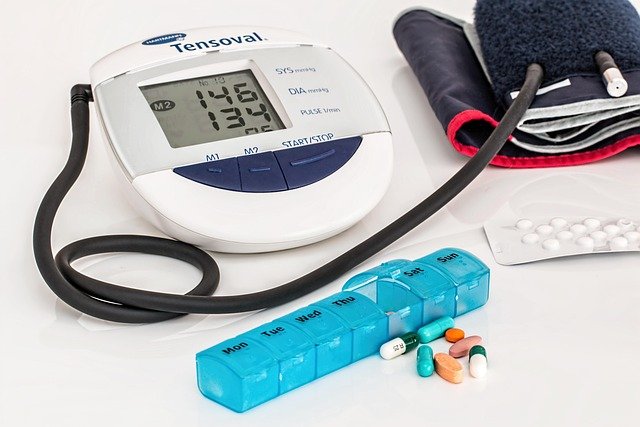Early Warning Signs of Heart Failure and Valve Disease
Heart failure and heart valve disease can show early warning signs. Learn about heart failure symptoms and how to spot signs of heart valve disease. Understand when to seek medical advice for a failing heart valve and take steps toward better heart health.

Heart failure and valve disease represent significant cardiovascular conditions that affect millions of people worldwide. Despite their serious nature, these conditions often begin with subtle symptoms that can be easily dismissed or attributed to aging or other less concerning causes. Early detection is vital, as prompt medical intervention can significantly improve prognosis and quality of life. This article explores the warning signs of heart failure and valve disease, prevention strategies, and treatment options to help you better understand when medical attention is necessary.
What Are the Early Signs of Heart Valve Disease?
Heart valve disease occurs when one or more of the heart’s four valves don’t function properly. These valves ensure blood flows in the correct direction through your heart. Early detection can be challenging as symptoms may develop gradually over time.
Common early warning signs include unusual fatigue during normal activities, shortness of breath (especially when lying flat or during physical exertion), and heart palpitations or irregular heartbeats. Some patients report a heart murmur—an unusual sound detected by physicians during routine examinations—which may be present before other symptoms appear.
Swelling in the ankles, feet, or abdomen (edema) may also indicate valve problems, as can chest discomfort that isn’t quite pain but feels like pressure or tightness. These symptoms occur because compromised valves make your heart work harder to pump blood effectively throughout your body.
How to Recognize a Failing Heart Valve
As valve disease progresses, symptoms often become more pronounced and difficult to ignore. Declining exercise tolerance is particularly telling—activities that were once manageable may suddenly cause excessive fatigue or breathlessness. This happens because damaged valves can’t efficiently support increased blood flow demands during physical activity.
Dizziness, lightheadedness, or fainting episodes (syncope) might occur, especially during exertion. These symptoms result from inadequate blood flow to the brain due to compromised cardiac output. Persistent coughing, sometimes producing white or pink blood-tinged mucus, can signal fluid buildup in the lungs related to valve dysfunction.
Weight gain without apparent cause may indicate fluid retention, while decreased appetite and abdominal discomfort can result from fluid buildup affecting digestive organs. If you notice a combination of these symptoms, especially if they worsen over time, consult a healthcare provider promptly.
Heart Failure Prevention Strategies
Preventing heart failure and valve disease begins with managing risk factors and adopting heart-healthy lifestyle habits. Regular physical activity—aim for at least 150 minutes of moderate exercise weekly—helps maintain cardiovascular fitness and control weight. A heart-healthy diet rich in fruits, vegetables, whole grains, lean proteins, and limited sodium supports overall heart health.
Maintaining healthy blood pressure is crucial, as hypertension places additional stress on heart valves and cardiac muscle. Similarly, managing cholesterol levels through diet, exercise, and medication when necessary helps prevent atherosclerosis that can contribute to heart failure.
Avoid tobacco products and limit alcohol consumption, as both can damage heart muscle and valves over time. Managing stress through techniques like meditation, deep breathing exercises, or yoga can also support heart health by reducing hormonal responses that increase cardiac workload.
For those with existing conditions like diabetes, thyroid disorders, or sleep apnea, proper management is essential as these conditions can contribute to heart failure when uncontrolled. Regular check-ups with your healthcare provider allow for monitoring of heart health and early intervention if problems arise.
When to Consult a Doctor for Heart Issues
Knowing when to seek medical attention for potential heart problems can be lifesaving. Contact a healthcare provider immediately if you experience severe chest pain, especially if accompanied by arm pain, jaw pain, shortness of breath, or cold sweats—these may indicate a heart attack requiring emergency care.
Schedule a prompt appointment if you notice progressive shortness of breath, particularly during routine activities or while lying down. Persistent swelling in your lower extremities, unexplained fatigue, or irregular heartbeats also warrant medical evaluation. Fainting episodes or severe dizziness should never be ignored, especially in people with known heart conditions or risk factors.
Regular preventive care is equally important. Adults should have blood pressure checked at least annually and undergo recommended cholesterol screenings. Those with family histories of heart disease or personal risk factors may need more frequent monitoring and earlier screening for valve disease and heart failure.
Treatment Options and Medical Care
Treatment for heart failure and valve disease varies based on the specific condition, its severity, and individual patient factors. Medication often forms the cornerstone of initial treatment, with options including ACE inhibitors, beta-blockers, diuretics, and anticoagulants to manage symptoms and slow disease progression.
For valve disease, surgical intervention may be necessary when medication alone proves insufficient. Valve repair preserves the patient’s original valve while correcting defects, while valve replacement substitutes the damaged valve with a mechanical or biological alternative. Minimally invasive procedures like transcatheter aortic valve replacement (TAVR) offer options for patients who cannot undergo open-heart surgery.
Lifestyle modifications complement medical treatment, with cardiac rehabilitation programs providing supervised exercise, nutrition counseling, and education to optimize recovery and long-term management. Regular follow-up care ensures treatment efficacy and allows for adjustments as needed.
Advanced heart failure may require more intensive interventions, including implantable devices like pacemakers, implantable cardioverter-defibrillators (ICDs), or ventricular assist devices (VADs). In severe cases, heart transplantation may be considered for eligible patients.
This article is for informational purposes only and should not be considered medical advice. Please consult a qualified healthcare professional for personalized guidance and treatment.




